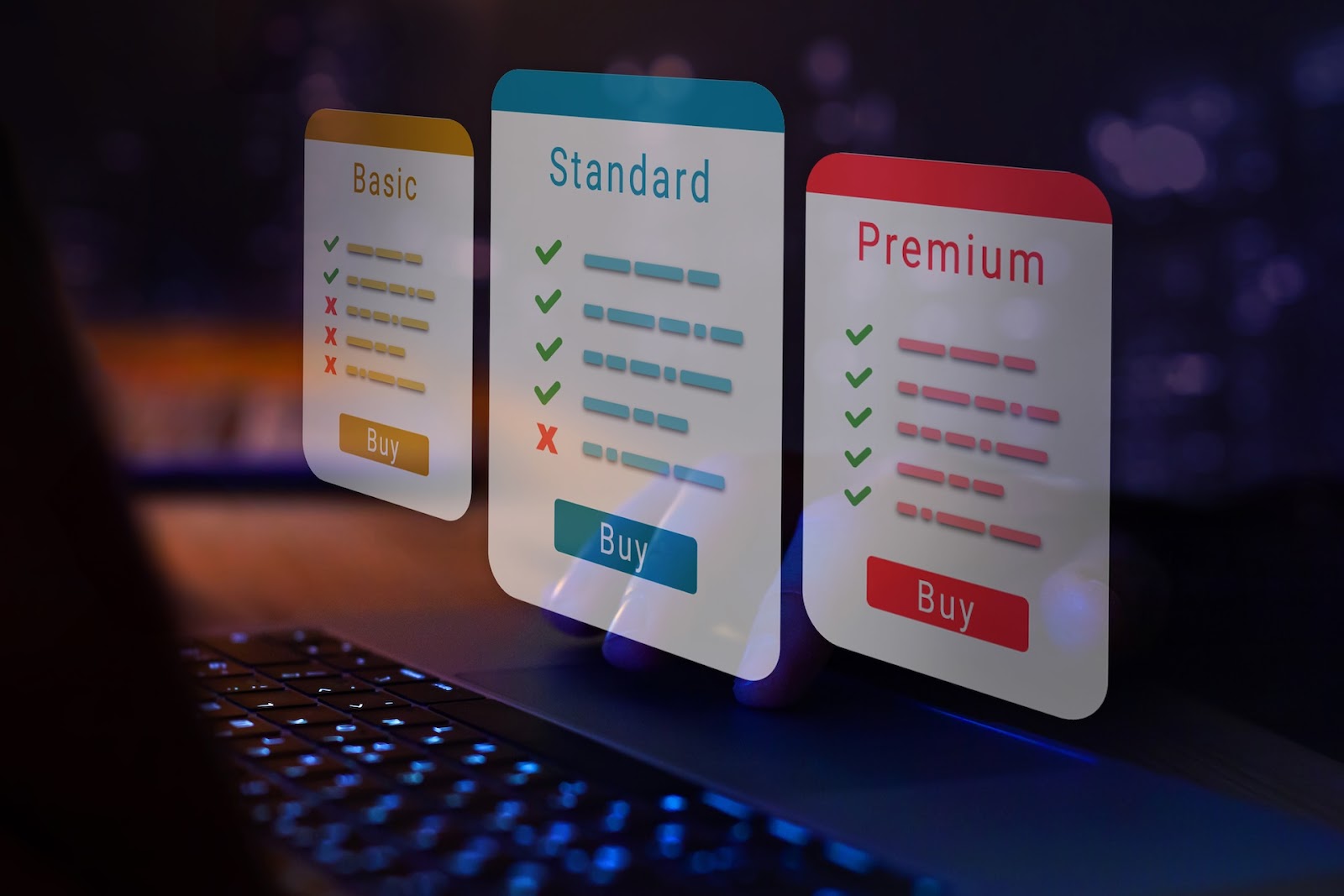Event management software pricing is changing fast, and in 2025, venue managers must be more strategic than ever.
Whether you manage a single event space or oversee multiple venues across a region, understanding the event management software landscape is key to choosing the right platform for your team and clients.
This guide breaks down pricing models, feature tiers, hidden fees, and add-ons so you can plan with clarity and invest confidently for the year ahead.
Why Pricing for Event Management Software Is More Important Than Ever
As event management software companies expand their offerings, pricing is no longer just a monthly line item, it’s a major factor in operational success.
For venue managers, choosing the right management software directly impacts everything from how efficiently your team works to how easily you can manage event details, respond to event clients, and grow your business.
The Rising Demand for Smarter Venue Management
The event industry is experiencing rapid growth, with more venues hosting hybrid events, in-person events, and private events than ever before. This increase in demand has led to the rise of more sophisticated event management apps designed to simplify the event management process.
As attendees expect faster check-ins, real-time updates, and smoother communication, venues must adopt technology that enhances attendee engagement and improves the flow of event information.
Venue managers are no longer just booking spaces for their guests. They’re also coordinating event websites, integrating event data and ticketing software, and supporting event organizers with everything from badge printing to onsite registration.
The right software allows teams to scale, manage multiple events, and provide seamless service without burning out staff or blowing the budget.

The Cost of Getting It Wrong: Common Pricing Pitfalls
Choosing the wrong event management software can lead to costly mistakes. One of the biggest is paying for tools that include features you’ll never use (like abstract management or advanced sponsor modules) when you're only managing single events.
Another is signing up for a cheap plan that doesn’t include ongoing support, training, or access to critical integrations like Google Calendar.
Some platforms promote “free” plans but hit you later with service charges, add-ons, or hidden payment processing fees.
These costs eat into margins and make scaling with unlimited users or managing unlimited events much harder than expected. To avoid getting stuck, look for software that aligns with your specific event planning needs and offers annual billing options that offer better value in the long run.
Pricing Models Explained: Subscription, Freemium, and Custom Packages
Understanding how event management software companies price their platforms is crucial for making a cost-effective and scalable choice.
As venues handle more events, diverse client needs, and tighter budgets, evaluating the right pricing model becomes a strategic decision that directly impacts operations and growth.
Today’s event management platforms offer a range of event management software pricing options designed to suit everything from boutique venues to enterprise-level organizations.
Whether you’re hosting a specific event or managing multiple events across locations, knowing what you're paying for (and what you're not) will help you avoid overpaying for underused features or getting stuck in a rigid contract.

Monthly vs. Annual Subscription Plans
Most event management software providers offer both monthly and annual subscription options.
Monthly plans are great for flexibility, but they usually come at a higher long-term cost. Annual plans (especially when billed annually) can deliver substantial savings and often include added perks like ongoing support, training, or professional proposals. However, they might come with early cancellation fees.
Venues hosting frequent events may find that annual plans provide better ROI by spreading costs over time and reducing the administrative hassle of monthly renewals.
But for those managing the occasional single event, a monthly plan may offer more adaptability without long-term commitments.
What’s Included in Free Tiers (and What’s Not)
Some event management apps promote free or freemium models to get you started. While these tiers can work for testing the event management process or exploring basic functionality, they’re usually limited in ways that matter to real-world venue operations.
Expect restrictions on users, event data storage, access to event details, or advanced reporting. Many don’t allow payment processing, online payments, or third-party integrations like Google Calendar.
If you’re managing event websites, need to support event planners, or require robust client communication tools, you’ll quickly find yourself needing to upgrade.

Custom Pricing for Large Organizations
For larger venues, hospitality groups, or enterprises with complex requirements, custom pricing is often the best fit. These packages typically include volume discounts, dedicated sales team support, implementation, and personalized event planning workflows.
At Perfect Venue, we work closely with large and multi-site venues to tailor plans that match your operational structure. Whether you need unlimited users, granular user permissions, or flexible access across departments, our pricing scales with your business, not against it.
If your organization hosts hundreds of thousands of attendees annually or supports various event organizers, a customizable platform can make all the difference between success and stress.
Hidden Fees to Watch Out For
Many event management software platforms advertise affordable base pricing, but that number can quickly climb once hidden costs enter the picture.
For venue managers working with fixed budgets and multiple events, these extra expenses often come as an unwelcome surprise. To make the most of your investment, it’s essential to understand the total cost of ownership, not just the monthly rate.
Below are two common areas where fees can creep in unexpectedly:
Add-Ons and Service Charges
Basic plans often exclude premium features, forcing you to pay for add-ons like event websites, email marketing integrations, or advanced data reporting. Even simple features like custom branding, badge printing, or exporting event details may require an upgrade.

Some providers also charge service charges for onboarding or customer support, which aren’t always listed upfront. These costs may seem minor, but they can stack up quickly across events, especially if you’re supporting unlimited users or hosting private events with unique requirements.
Payment Processing and Ticketing Fees
If your platform handles ticket sales or online payments, expect payment processing fees, typically a percentage of the transaction, plus a flat fee. Whether you're collecting payments for a single event or dozens, these charges can cut into your margins if not factored into your pricing model from the start.
Key Features That Affect Event Software Pricing
Not all event management software is created equal, and pricing often depends on the platform's feature richness and scalability.
As a venue manager, understanding which features justify a higher price tag can help you align your investment with your specific needs and avoid overpaying for tools that don’t serve your team.
Here’s a breakdown of the most important pricing drivers to consider:
From Basic Tools to Robust Platforms
Entry-level event management apps typically focus on core scheduling, capturing simple event information, and managing contacts. While affordable, these options often lack the flexibility and depth needed for managing events at scale.
On the other hand, a robust platform may include built-in CRM tools, proposal builders, attendee tracking, and onsite registration, ideal for venues running multiple events, managing event clients, or needing professional proposals for high-end bookings.
Naturally, these tools come at a premium, but they often deliver a strong return on investment (ROI) through efficiency gains and improved client experiences.
Integration Capabilities and Automation
Software that integrates easily with tools like Google Calendar, accounting platforms, or event marketing systems simplifies operations and reduces repetitive tasks.
Automation allows you to confirm bookings, send reminders, and update event details without manual effort, which is especially useful when supporting unlimited events and large organizations.
Platforms with advanced integrations are typically priced higher, but they also unlock significant time savings and allow teams to focus more on strategy and attendee engagement.
Training, Support, and Onboarding Costs
Don’t overlook training and ongoing support when budgeting for event management software pricing. Whether you're onboarding a small team or an entire organization, proper setup can reduce friction and ensure long-term success.
At Perfect Venue, we provide guided implementation, live training, and continuous support, all included, so your team can hit the ground running with confidence.
Comparing Top Event Management Software Companies
Choosing the right event management software can be overwhelming with the numerous tools available on the market. Whether you’re a boutique venue or part of a multi-site organization, it's essential to compare event management software companies based on actual features, pricing, and user experience.
This comparison helps ensure you’re not paying for the wrong platform, missing key integrations, or making costly mistakes that disrupt your event management process.
Here’s how leading providers stack up for managing events of all sizes:
Feature-to-Pricing Breakdown of Leading Tools
Each tool caters to different business types. For example, platforms like Cvent and Eventbrite offer robust options for conferences, but might be overkill for a venue managing private events.
How Perfect Venue Stacks Up
At Perfect Venue, we’ve created an ideal solution specifically for venue managers. Unlike bloated software that caters more to event planners or external agencies, our platform focuses on simplicity, flexibility, and real value.
You get everything you need, including training, ongoing support, and access for unlimited users, with transparent event management software pricing. Our tools help your team manage the entire event lifecycle, from booking to attendee engagement, with minimal effort.
Ready to simplify event management? Watch a Demo with Perfect Venue today or explore our pricing page to find the right plan for your venue.
Budgeting Tips for Venue Managers Choosing Software
Many teams make costly mistakes by choosing platforms that are either overengineered for their needs or seem affordable but lack essential features like analytics, integrations, or ongoing support.
So, keep these tips in mind when browsing software options for your budget.
Match the Software to Your Event Scope
Are you managing multiple events or hosting a few high-end single events each month? Your ideal event management software should align with your actual event planning volume and the complexity of your operations.

Watch for Hidden Costs
Don’t get caught off guard by unexpected fees. Always ask about potential charges for add-ons, advanced tools, badge printing, or service charges that may not be included in the base plan.
Get Your Team Involved Early
Include your front desk staff or sales team in the evaluation process. Their insights can help confirm whether the software fits naturally into your existing event management workflow and supports your internal team structure.
Test the Software Thoroughly
Use free trials to explore how the software handles real-world tasks, like managing event clients, syncing with Google Calendar, or enabling payment processing for ticket sales or online payments.
Don’t Overlook Training and Support
Make sure your vendor offers proper training, smooth implementation, and responsive support. Without these, even the best platform can struggle to gain traction and cause delays across your organization.
What to Expect From the Event Management Software Industry in 2025
The event industry is evolving quickly, and the technology behind it is keeping pace. In 2025, venues should expect event management software to become even more agile, scalable, and automation-driven.
As event organizers deal with tighter timelines and greater expectations, smarter tools will be key to delivering high-impact events with less effort.
Expect to Manage More Events, More Often
Event frequency is rising. Whether you're hosting recurring meetings or large conferences, venues will need tools that support unlimited events and help manage volume without increasing workload. Flexibility and scale are now baseline expectations.

Embrace Hybrid and In-Person Solutions
With the continued rise of hybrid events and a strong return of in-person events, modern platforms must support multiple formats.
Look for event management apps that offer seamless attendee check-ins, live streaming, and remote collaboration, giving your team the tools to manage every type of event from one system.
Prioritize Real-Time Access and Automation
Venues are shifting toward tools that enable real-time event data tracking, mobile responsiveness, and automation. From task notifications to schedule updates, having instant access helps teams stay coordinated and productive on the go.
Use Tools That Improve Attendee Engagement
Modern event management software should come with built-in tools for attendee engagement, like surveys, polls, live Q&As, or feedback collection. These features increase participation and enhance the overall event experience, critical for venues focused on long-term client retention.
Venues that invest in software built for these 2025 trends will be positioned to thrive, with better performance, happier clients, and a smarter approach to event management.
Final Thoughts on Event Management Software Pricing
In 2025, event management software pricing reflects the level of control, efficiency, and flexibility your venue can achieve.
By carefully reviewing your needs, budget, and required features, you can choose a platform that simplifies your event management process without overspending.
Curious about the best-fit plan for your venue?
Contact our team for a free quote, or start your 14-day free trial and experience the difference Perfect Venue can make.





